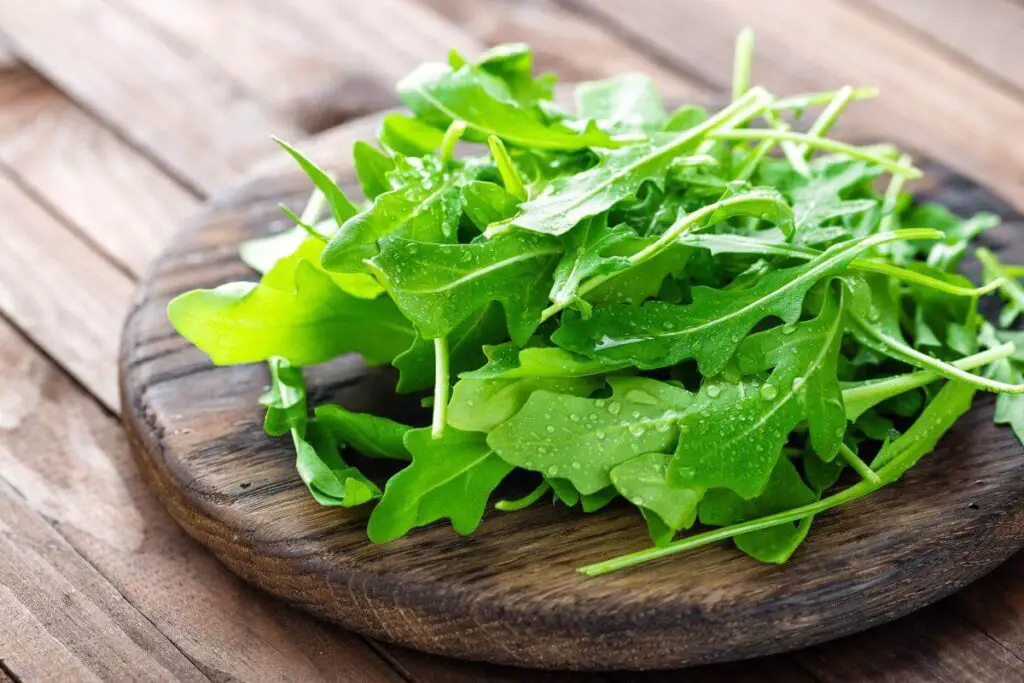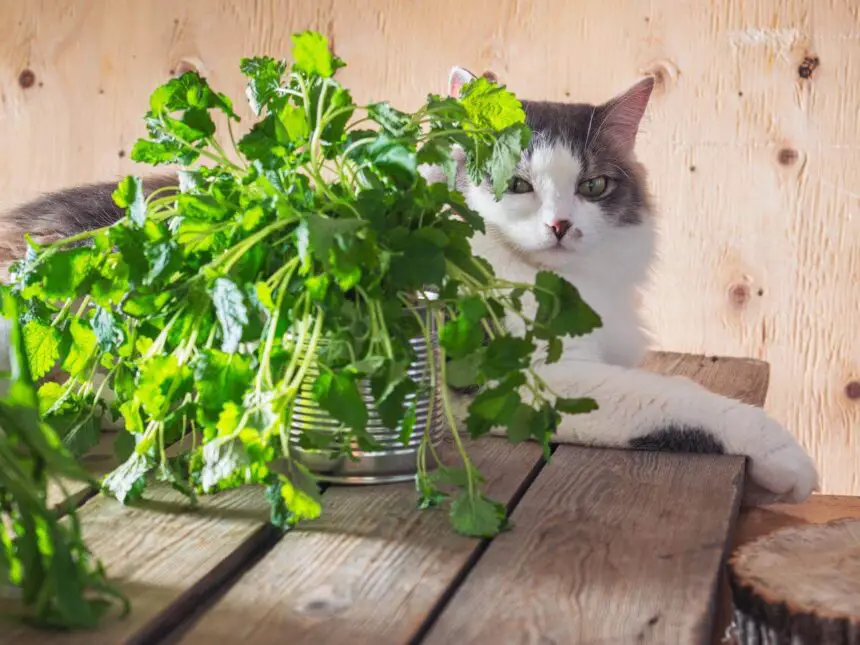As responsible pet owners, it’s crucial to pay close attention to what we feed our feline companions. While cats are obligate carnivores, meaning their bodies are designed to derive essential nutrients from animal-based diets, there is sometimes curiosity about incorporating other foods into their meals. One such food that often sparks curiosity is arugula, a peppery and nutritious leafy green. In this article, we will explore whether cats can eat arugula, consider the benefits and potential risks associated with introducing leafy greens into their diet, and provide recommendations for maintaining a balanced and healthy feline nutrition plan.
Can Cats Safely Eat Arugula?
When it comes to arugula, it is generally safe for cats to consume in small amounts. Arugula is a member of the Brassicaceae family, which also includes vegetables like broccoli, kale, and cabbage. While these greens offer several health benefits for humans, cats have different dietary needs, and their digestive systems may not handle certain plant-based foods as efficiently.
Benefits of Arugula for Cats
Arugula is a nutrient-dense leafy green that contains various vitamins and minerals. It is an excellent source of vitamin K, vitamin C, folate, and calcium. Additionally, arugula is low in calories and carbohydrates, making it a potentially beneficial addition to a cat’s diet if introduced in moderation. However, it’s essential to remember that cats have limited ability to process plant matter efficiently, so while arugula may offer some nutritional benefits, it should never replace a balanced and appropriate meat-based diet.

Risks and Considerations
While arugula is generally safe for cats, there are a few risks and considerations to keep in mind:
- Digestive Upset: Cats may experience gastrointestinal issues, including vomiting or diarrhea if they consume large quantities of arugula or any unfamiliar food. Introduce new foods slowly and monitor your cat’s response.
- Oxalates: Arugula contains oxalates, which can contribute to the formation of urinary crystals or stones in some cats. If your cat has a history of urinary tract issues, it’s best to avoid arugula and consult with a veterinarian for specific dietary recommendations.
- Pesticides and Herbicides: Like any other leafy green, arugula may have been treated with pesticides or herbicides, which can be harmful to cats. Always wash arugula thoroughly before offering it to your cat or consider using organic varieties to minimize potential risks.
FAQ
Can I feed my cat arugula every day?
It is not recommended to feed your cat arugula or any leafy green as a primary or daily food source. Cats have specific dietary requirements that are best met through a balanced meat-based diet. Arugula can be offered occasionally as a small treat or addition to their regular diet, but it should not replace their primary source of nutrition.
Are there any other leafy greens that are safe for cats to eat?
Some leafy greens, such as spinach and kale, can be safe for cats when offered in small quantities. However, it’s important to remember that cats are obligate carnivores, and their digestive systems are not optimized for processing plant matter efficiently. While small amounts of leafy greens can provide certain nutrients, they should always be secondary to a balanced and appropriate meat-based diet.
Are there any benefits to feeding cats leafy greens?
Leafy greens can provide certain nutritional benefits to cats when offered in moderation. They are a source of vitamins and minerals, such as vitamin K, vitamin C, and calcium. However, it’s crucial to remember that cats have unique dietary needs, and their bodies are designed to derive essential nutrients from animal-based sources. Leafy greens should not be relied upon as the primary source of nutrition for cats.
What should I do if my cat shows signs of digestive upset after eating arugula or other leafy greens?
If your cat experiences digestive upset, such as vomiting or diarrhea, after consuming arugula or any other food, it is advisable to discontinue offering that food immediately. Monitor your cat’s condition and consult with a veterinarian if the symptoms persist or worsen. It’s always important to introduce new foods gradually and pay attention to your cat’s individual response to ensure their well-being.
Disclaimer: The information provided in this article is for educational purposes only and should not replace veterinary advice. If you have specific concerns about your cat’s diet or health, consult with a qualified veterinarian.
Can cats eat other vegetables or fruits?
Cats are primarily carnivorous animals, and their digestive systems are not designed to handle large quantities of vegetables or fruits. While small amounts of certain vegetables or fruits can be offered as occasional treats, they should not constitute a significant portion of their diet. Some safe options include small amounts of cooked carrots, peas, or pumpkin. However, it’s important to avoid toxic foods like onions, garlic, grapes, raisins, and certain fruits with pits or seeds.
Is it necessary to supplement my cat’s diet with vitamins or minerals?
In general, a balanced and appropriate commercial cat food should provide all the necessary vitamins and minerals for your cat’s nutritional needs. However, if you have concerns about your cat’s specific dietary requirements or if they have underlying health conditions, it’s best to consult with a veterinarian. They can assess your cat’s needs and recommend any necessary supplements if deemed appropriate.
Are there any natural alternatives to commercial cat food?
While commercial cat food is formulated to meet the nutritional needs of cats, some pet owners prefer to provide homemade diets. However, it can be challenging to ensure a homemade diet meets all of a cat’s nutritional requirements. If you choose to prepare homemade meals for your cat, it’s important to work with a veterinarian or a veterinary nutritionist to develop a nutritionally balanced recipe specifically tailored to your cat’s needs.
Can I feed my cat raw food or a raw diet?
Feeding a raw diet to cats is a topic of debate among pet owners and veterinary professionals. While raw food diets can provide certain benefits, such as increased moisture content and potentially higher levels of natural enzymes, there are also potential risks associated with raw feeding. Raw diets can pose a risk of bacterial contamination, nutrient imbalances, and potential harm to both cats and their human caretakers. It’s crucial to consult with a veterinarian to weigh the risks and benefits and determine the best feeding approach for your cat.
How important is fresh water for cats?
Fresh water is essential for cats to maintain proper hydration and overall health. Cats have a low thirst drive, so it’s important to provide them with clean and fresh water at all times. Make sure to regularly clean their water bowls and change the water to ensure it remains appealing and free of any contaminants. If you notice your cat is not drinking enough water, consult with a veterinarian as it could be a sign of an underlying health issue.
Can I give my cat treats or table scraps?
Treats can be given to cats in moderation as a way to reward or provide occasional variety. However, it’s important to choose cat-specific treats that are formulated to meet their nutritional needs and avoid giving them excessive amounts. Table scraps, on the other hand, are generally not recommended for cats. Human food can be high in fat, salt, or other ingredients that are harmful to cats. It’s best to stick to a balanced and appropriate cat food diet to ensure your cat receives the necessary nutrition.
Conclusion
While cats are obligate carnivores and primarily require a meat-based diet, arugula can be safely included in their meals in small quantities. Arugula offers certain nutritional benefits, but it should never replace the primary source of nutrition for cats. As with any dietary change, it is essential to introduce new foods gradually and monitor your cat’s response. Always consult with a veterinarian for specific dietary recommendations tailored to your cat’s individual needs, and remember that a balanced and appropriate meat-based diet is crucial for maintaining their overall health and well-being.


